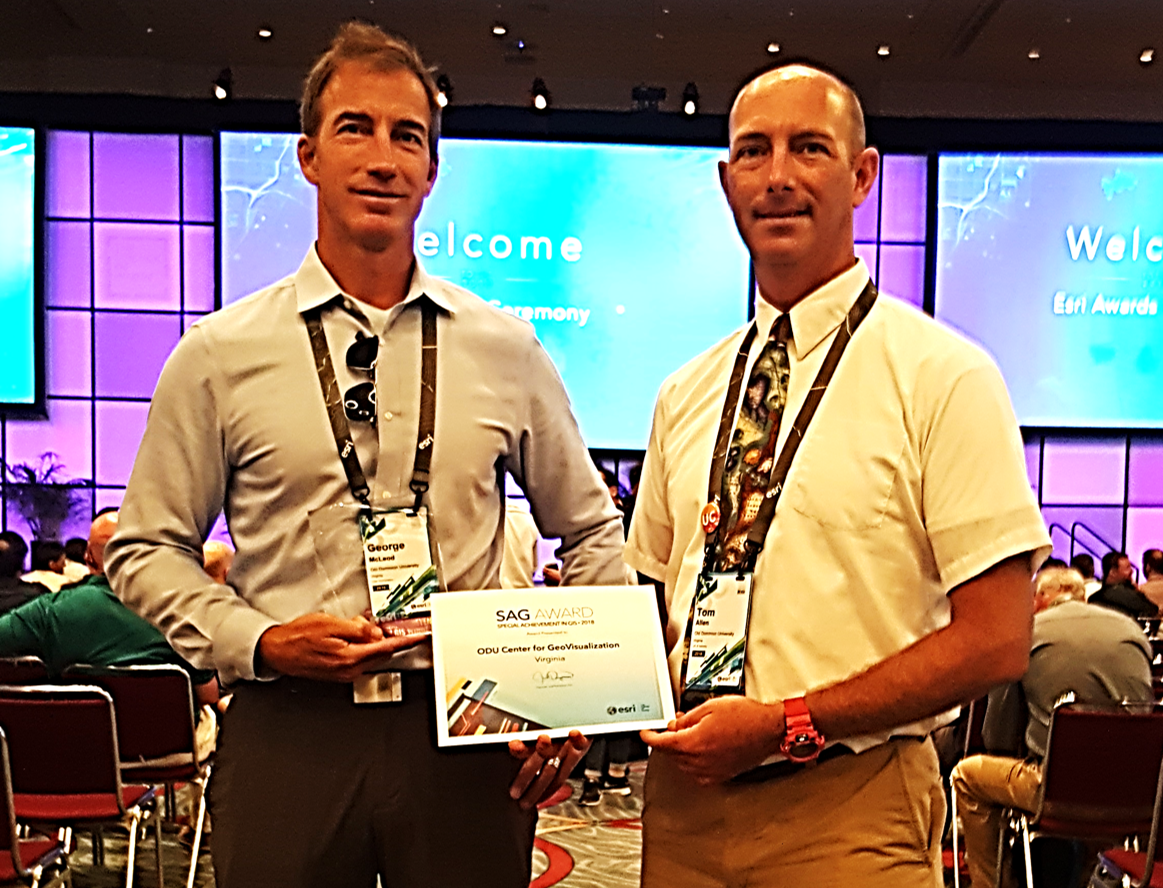The geospatial and visualization systems team from Old Dominion University recently won a Special Achievement in Geographic Information Systems (GIS) award from Esri, the world's leading location intelligence company.
The team was recognized for its work and leadership in research and innovation in coastal resiliency and marine GIS.
Esri founder and president Jack Dagermound presented the award during the company's national users' conference in San Diego.
"The SAG Awards identify the organizations and people who are using the power of geography to make our world a better place," Dangermond said. "At Esri, we are always deeply inspired by the passion and innovation of our users. They deserve recognition for their invaluable contributions to their communities and the continued evolution of geographic science."
Only 175 of the over 100,000 Esri clients -- representing every commercial sector, government organization and nonprofit field -- received SAG awards for their work.More than 18,000 attended the conference.
ODU was the single recipient from the U.S., and one of only three in the world, in the SAG Research/Science Institution category.
George McLeod, assistant director for geospatial and visualization systems, received the award along with Maruf Sakib, GIS engineer, and Tom Allen, professor of political science and geography. Alumnus, and current Esri employee, Keith VanGraafeiland was also on hand to celebrate his alma mater's accomplishment.
McLeod sees diversity as a key element to the team's success.
"I couldn't be prouder of our team of faculty, staff and students whose hard work is so deserving of this accolade," McLeod said. "Our accomplishment stems largely from the fact that we have built an amazingly diverse and skilled team comprised of faculty, administrative faculty, classified staff, undergraduate students, and graduate research assistants."
The team uses advanced technologies and GIS techniques to understand risk and resilience in both constructed and natural environments. They can use the information to help alert organizations and municipalities of potential threats.
In 2017, ODU evaluated flood models for the Port of Virginia's Norfolk International Terminals to identify the danger posed to critical terminal infrastructure by storm surges compounded by sea level rise.
Faculty have also conducted coastal vulnerability assessments integrating water infrastructure and public health for Charleston, South Carolina, and Morehead City, North Carolina.
The team is currently using drones along the Southeastern Virginia shore to determine flooding and flood damage, monitor coastal change, and communicate these issues to the public via 2D and 3D images.
"We're extraordinarily grateful for external partners like NASA, NOAA and Port of Virginia, who continue to provide funding and present us with new and challenging projects," McLeod said. "We believe taking an outward-facing approach and being actively engaged in our community is the best way to develop a thriving program."
McLeod also believes that the best is yet to come for the geospatial and visualizations team.
"I don't view this award as any sort of culmination for us," McLeod said. "We have much more incredible work in the pipeline and are truthfully just getting started!"




